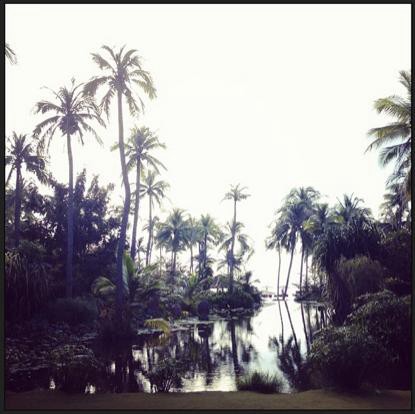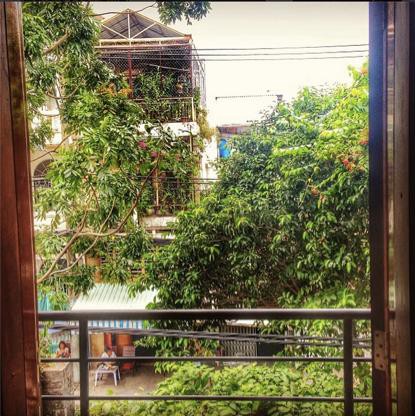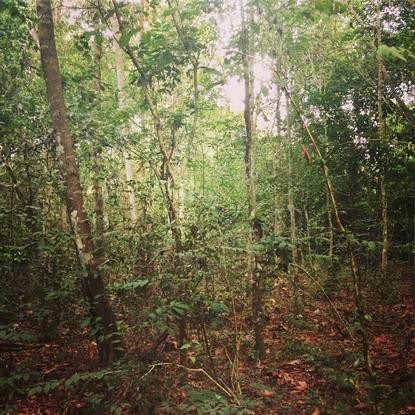The Book I Didn't Write
by Elmo Keep

I didn’t write the book because the thought of it made me feel vaguely ill at all times. Even when I wasn’t thinking about it directly I was thinking about it. None of the thoughts were good.
I didn’t write the book because it was a book about betrayal that could only be facilitated by my betrayal of other people, many of whom had already been betrayed. This wouldn’t have been a clever metatextual commentary on the nature of betrayal; it would have just been really quite mean of me, and sad.
I didn’t write the book because I thought that in the end it would not be interesting. Every day I wondered who would care about the story. There are only so many books that each of us can read in a lifetime; why would this book be one of them? The enterprise of writing — or not writing — the book took on the tenor of the absurd in my mind because it would have hurt no small number of people, and for me to dig around in their lives to turn them into Characters with a Point To Make was not a moral calculus which would ever come out with me in the black.

I had gotten as far as an epigraph:
We are who we pretend to be, so we must be careful about who we pretend to be.
This was also a problem. In this one sentence, Kurt Vonnegut had elegantly expressed everything I’d hoped I might say in an entire book.
There were also roughly forty thousand words, written over two years, mostly useless, arranged into folders that I liked to move around. One day I dragged them over to the little trash icon and they disappeared with that noise meant to mimic crunching up paper.
The book was about secrets — the personal, complicated kind — about what constituted love, and what did not. But the secrets were not mine to tell. I thought a lot about their corrosive nature, and how so much could have been avoided if only people hadn’t kept secrets. But I could not resolve the conflict of a story that was not mine. So the secrets stay buried.

Sometimes I thought I imagined the voice of my father, who has been dead for ten years, imploring me to just not do this, please, though he would have never said “please.” I could tell you that for certain; what else he would say, I have no idea. My father was a complete stranger to me, even though I had known him for all of my life. The whole point of the book was that I might be able to find out who he was, if I could just uncover enough evidence, enough facts, stir enough ghosts.
My father was not a good man; he was what an objective reader might call a terrible person. This presents what is known as the unsympathetic lead. It also presents what will be familiar to all children of narcissists — a great deal of various awfulness that will haunt you in a seemingly unending number of ways for most of your life, until you decide that you are going to actively undo it.
My father stole people’s money, was prone to flights of unhinged fabrications — mostly concerning his self-professed genius — and frequently unleashed truly terrifying maelstroms of pure, animalistic, verbal rage. He meddled in other people’s affairs because he was bored and vindictive; when not doing this, he shut himself in a room during the day and slept for hours, then roamed the house all night. It was like living with a caged bear that was also responsible for ensuring your welfare, such as it was. By the end of his life at sixty-four he had alienated everybody he knew. He died alone and broke in a rooming house, and that is kind of poetic, but it’s also something that, when I think about it, makes me feel like a plastic container crumpled in on itself.
I spent my advance to get copies of his financials and academic transcripts and military records, which I tried to divine like runes, but which stubbornly refused to reveal intelligible patterns. I tracked down people from his past and somewhat traumatized them with the truth of his nature. I came to think that, in the amateur’s assessment, my father was quite possibly a sociopath: He was profoundly gifted at lying and charming and bilking others while, at home, he was a slovenly, profane, inexpressibly miserable figure of terror. Those two versions of himself never crossed paths with each other.
I traveled to Vietnam to try and retrace his steps at the Rex Hotel in Saigon, where he would have received his briefings to take back to the field. There’s a bar on the roof where the press would gather to do more drinking than reporting. I sat and looked over the city as giant Christmas lights were strung across a department store and carol snippets hung, disjointed, in the hot, thick air. It was hard to imagine how things would have looked back then, not least because what had been the so-certainly-threatening Communist scourge was obscured now by boutique, luxury shopping that felt like walking the streets of Soho. My father had never talked about this time in his life with me. He never really talked about any part of his life in an authentic way, but this part — the tail end of the first decade of the war — least of all.

I rode on the rickety bus to the sweating, dust-ridden Cu Chi tunnels where, after being given a sobering history of the war by an elderly Vietnamese man — who up until he had no choice except to fight, had been training in the seminary — tourists excitedly mounted the decommissioned tank and posed for photographs, brandishing the turret’s machine gun. I went further through the jungle to the firing range. When I pulled the trigger of an M16, I thought I was going to vomit. Next to the range is a gift shop staffed by people forced to listen to every deafening round being fired for ten hours a day. A heavily pregnant dog lied on the cold concrete floor of the shop; I patted her absently while drinking a couple of cans of one-dollar beer, one after another, to erase the sensation of the gun from my hands.
I puttered along the Mekong, lying in a hammock on the bow of a small boat for hours, until we arrived at a tiny fishing village at the end of a tiny estuary. At the village on the water, while the sun beat down on our necks and we dangled our feet in the river, we wordlessly ate charred, barely dead fish we folded into rice paper with cold noodles, fragrant, fresh mint and chopped chilis so hot I felt the heat on the outside of my face. Back in the dense, steaming city I daydreamed, briefly, of buying a motorcycle, abandoning the book I wasn’t writing, and living on cups of strong Vietnamese coffee and piping hot pho forever.
I kept thinking of what the book was about,: What it would say? What was its point? Why did it exist? People would ask me and I would say that it was about choices. Choices and their consequence. They would look at me like they didn’t understand.
The book would have been about power — power in institutions, of social structures. Of wars and who wielded them. Of personal agency and people with none. I thought that I could impose a structure of order upon chaotic personal histories and reckon things right. The book would have been about memory. How memory is porous, fallible, tensile, illusory. It would have been a book of fiction even if it were, in the reportorial sense, true.
I thought that the book might be about becoming, perhaps mine. I thought that if I looked hard enough into the past that something would be revealed. I thought it might have been a cleansing fire. But it wasn’t; it was a yoke. I had been seduced by the idea of being a writer, a writer of books. I imagined the book might advance my career, legitimize my tinkering. That isn’t a reason to write a book.

The book would have ended up on a shelf labelled Sad and Torturous Family Histories. Or, Read These Books and Feel Great About Your Own Parents! For a book that was meant to be about how these experiences did not come to define me, in the end, the process of explaining that had taken over almost all of my interior; it was like getting a flu shot only to come down with a bout so debilitating it put you in the hospital.
I lurked an email list I had been added to after my father died by someone who had served in his battalion. They would write to each other with news of their grandchildren’s graduations, and of commemorative group outings and increasingly of notices of those on the list who had died as well. There were barely any of them left alive now. I read their messages, keeping them all, for years. I was never quite able to invade their decades’ old web of careful connections, to disturb it, to dirty it up. So I watched as the years passed and their numbers thinned and their annual get-togethers grew increasingly more sedate. It was like witnessing a once mighty machine winding down. Where would my father ever have fit in to this? I didn’t have it, that sliver of ice.
We aren’t who we can’t pretend to be.
Elmo Keep is an Australian writer. She’s working on something else now.
